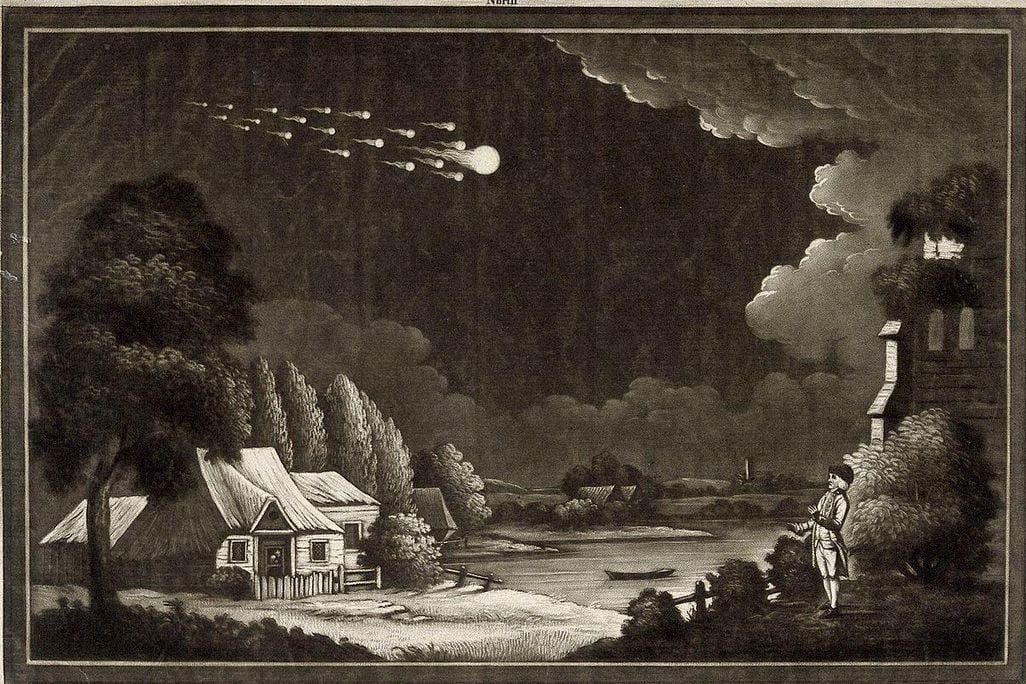Picture this: you live in the town of L'Aigle in Normandy, France. You're just going about your business on this day in 1803, when suddenly, rocks start to fall from the sky.
You'd notice, right? Well, it was the presence of a townful of witnesses to more than 3,000 stones falling from the sky that finally helped scientists confirm that meteorites came from space.
Although writing about meteorites goes even farther back than the Romans, writes French researcher Matthieu Gounelle, prior to the late 1700s nobody thought of them as something that needed scientific explanation. Like rains of less likely substances -- including "blood, milk, wool, flesh and gore," according to historian Ursula Marvin -- eighteenth-century rationalists with their fancy new scientific outlook thought the stories of rains of iron rocks weren't real.
A physicist named Ernst Chladni had published a book in 1794 suggesting that meteorites came from space. Chladni was hesitant to publish, writes Marvin, because he knew that he was "gainsaying 2,000 years of wisdom, inherited from Aristotle and confirmed by Isaac Newton, that no small bodies exist in space beyond the Moon."
...But after the meteorites fell in l'Aigle, Jean-Baptise Biot, a physicist, went to analyze the event. Biot was a scientist whose resume also includes the first scientific balloon flight and pioneering work in the field of saccharimetry (a way to analyze sugar solutions)...
"Biot distinguished two kinds of evidence of an extraterrestrial origin of the stones," Gounelle writes. First, the kind of stone that had fallen was totally different than anything else available locally -- but it was similar to the stone from the Barbotan meteor fall in 1790. "The foundries, the factories, the mines of the surroundings I have visited, have nothing in their products, nor in their slag that have with these substances any relation," Biot wrote.Scientists Didn't Believe in Meteorites Until 1803 | Kat Eschner | Smithsonian Magazine | April 26, 2017
An artist's rendering of a meteor passing over the British Isles in 1783. Unlike the L'Aigle meteor a few decades later, the meteorites from this event were not witnessed falling to the ground, and thus meteorites remained a scientific mystery for another 20 years.
Wellcome Images
